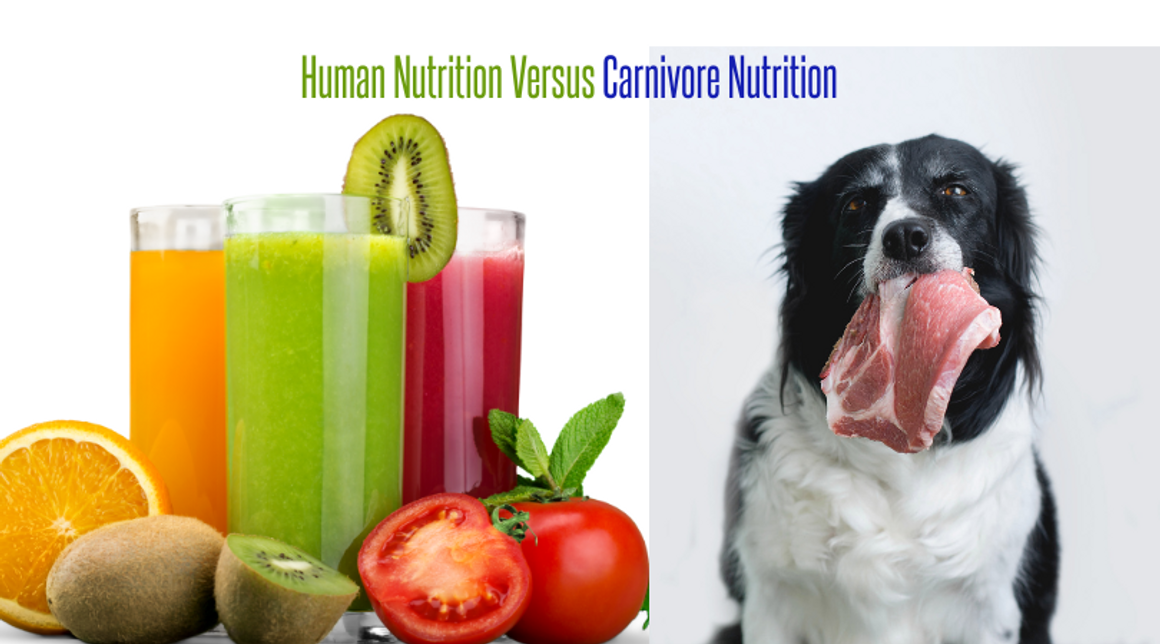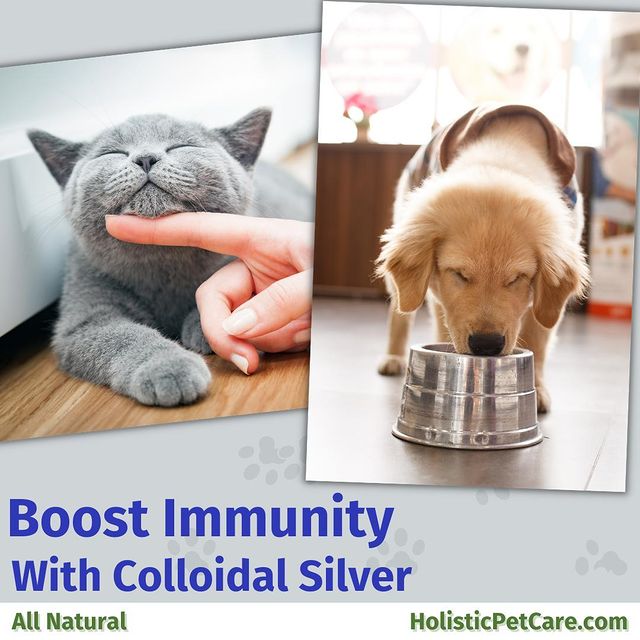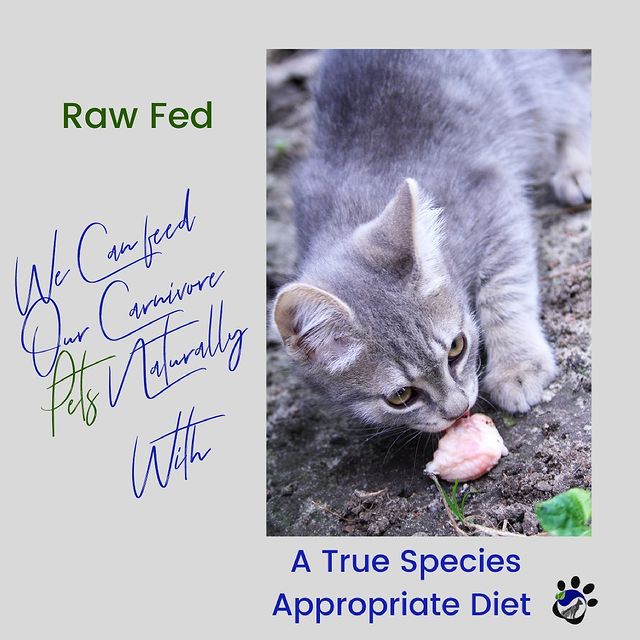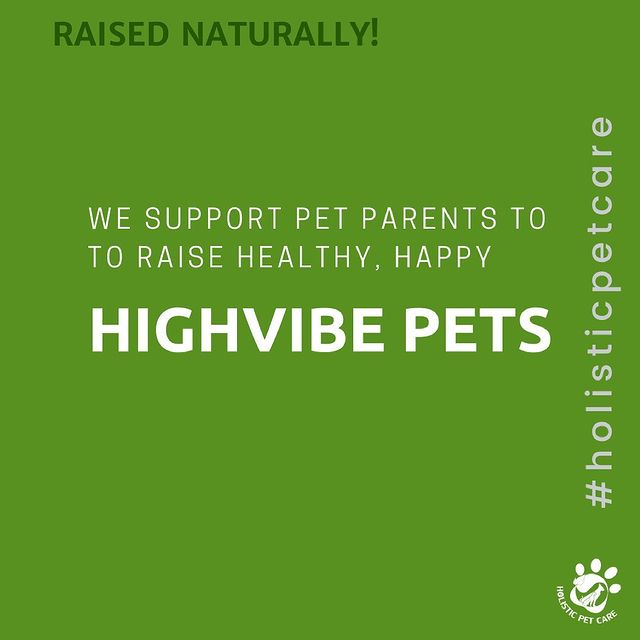Why Human Nutrition Is Different Then Carnivore Nutrition
Posted by Jewel on Jul 17, 2025
I recently had a thought provoking discussion with my 19‑year‑old grandson who believes humans should eat only meat, eggs, and fruit. While his idea comes from a desire for simplicity and health, it’s important to understand that humans and carnivores have very different nutritional needs—based on how our bodies are built.
1. Different Digestive Designs
-
Carnivores (like dogs and cats) have short, simple digestive tracts and highly acidic stomachs. Their bodies are optimized to process meat quickly and efficiently .
-
Humans, basically herbivore/omnivore, on the other hand, have longer intestines and produce digestive enzymes (like salivary amylase) that break down starches—designed for a mixed diet.
2. Nutrient Variety Matters
-
Carnivores thrive on raw meat, organs, and bones, extracting essential proteins, fats, vitamins, and minerals designed for their metabolism.
-
Humans require a broader range: proteins, healthy fats, fiber, vitamins A, E, B complex, iron, iodine, magnesium, antioxidants, and more. These come from vegetables, fruits, seeds, nuts, legumes, and quality meat or fish.
3. My Personal Nutrition Journey
For decades, I’ve explored nearly every diet trend—from raw food, keto, Whole30, vegan, raw vegan, vegetarian, holistic, organic health food, nourishing traditions and many more over a close to 50 year journey of exploring and the lifelong study of health and nutrition for both people and animals—testing what truly heals and balances the human body:
- Since 16 years old learning about organic gardening and natural healthy living and cooking when living at Olompali in the 1960's
- Eventually gaining weight in my 20's leading me on a lifelong journey of body awareness and nutrition while battling food addictions during those early years
- Becoming a Certified Holistic Health Practitioner in the early 80's at the International College of Holistic Studies (ICOHS)- leading to teaching healthy nutrition as a professional Holistic Skin Care Practitioner and Nutritionist.
- Raw food chef days in 1999, focusing on teaching about living on raw fruits, seeds, nuts and veggies, green smoothies, and my famous raw sprouted buckwheaties that I still make til this day!
- Keto and all-meat protein experiments
- Whole30 resets and vegan trials
- Herbalist doing many detox, fasting, juicing regimes over the 30 years of teaching and practicing healthy nutrition as a holistic skincare practitioner
- Learning and teaching healthy animal nutrition, homeopathy, herbalism for pets since 1997 when I started a business in Ashland, Oregon called Animal Awareness Alternatives. Plus always being holistic and natural oriented with pets with a lifelong thirst for healthy knowledge and always learning this way since I had animals from a very early age.
- Eventually being certified in 2016 as an Animal Naturopath.
Through lived experience, I’ve learned that most humans thrive on a mostly plant-based diet, with room for eggs, occasional fish, or lean grass-fed meat—especially during transitional periods. But carnivore pets need raw meat, bones and organs to thrive.
4. The Right Diet for Carnivore Pets
Our pets are naturally built for a raw meat diet—it supports their energy, coat, digestion, and overall health. Cooked kibble simply doesn't provide the living enzymes, micronutrients, and healthy fats they need to thrive.
5. A Vision of the Future
I believe we are evolving toward a higher vibration and frequency—eventually, a way of being that transcends food altogether. Until then, we continue to nourish our bodies in the best natural way we know how:
-
For humans: a plant-strong diet, largely raw or minimally cooked, with nourishing animal proteins as needed.
-
For carnivore pets: a raw meat, organ, bones and some greens and supplements when appropriately added-type diet designed for their unique anatomy.
6. Practical Guidance
-
Interested in a plant-strong, raw food approach or thoughtful inclusion of animal proteins? Check out Whole30—especially the plant-based version—as a tool to discover what foods support your vitality
-
For your pet, a raw diet with muscle meat, organs, bones, and high living enzymes is ideal.
What’s right for one species isn’t always right for another. Humans and carnivores have different biology and dietary needs. My personal journey has shown me the value of balance—plant-based meals as a foundation, with occasional clean animal proteins. And as always, our pets flourish on diets tailored to their natural design.








